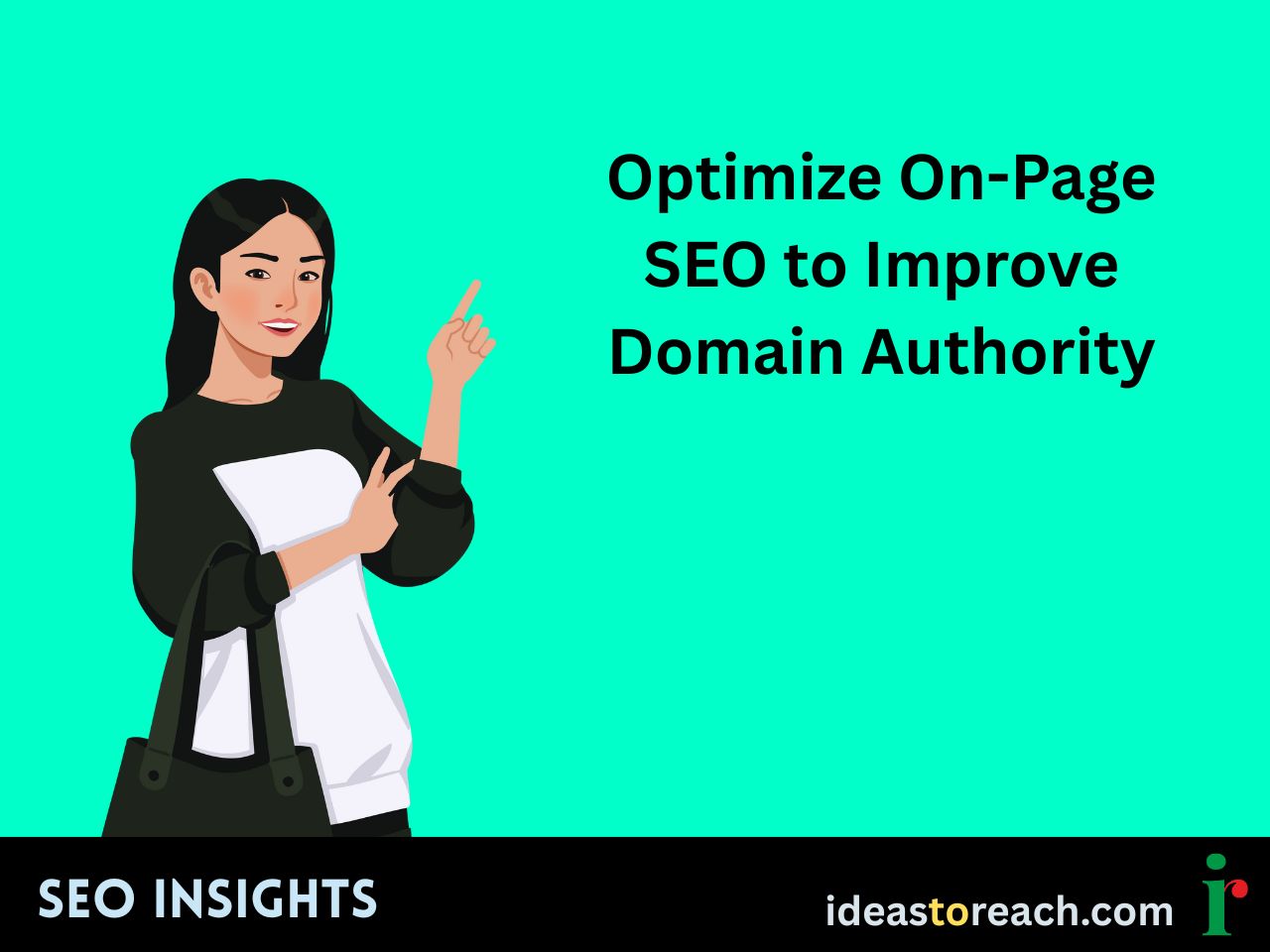
Domain Authority (DA) is heavily influenced by backlinks — but backlinks don't happen without good content, and good content needs solid on-page SEO.
On-page SEO refers to all the optimizations you make within your website pages to help search engines understand, rank, and trust your content. It also helps human visitors stay longer, click deeper, and view your site as a credible resource — all of which indirectly support better backlink acquisition and DA.
Let’s explore how optimizing your on-page SEO creates a strong base for higher Domain Authority.
Here’s how on-page elements tie into your Domain Authority journey:
When these elements work together, you create linkable content that earns authority — and that’s the foundation for DA improvement.
For a deeper understanding of linkable assets, read:
How to Create Linkable Content for Better DA
Titles and meta descriptions don’t directly increase DA, but they affect:
Follow recommended length guidelines:
Title & Meta Length Guide
Proper heading hierarchy makes your content easier to:
Use one H1, followed by descriptive H2s and H3s. This structure helps both SEO bots and readers find relevance — and share your content with others.
SEO-friendly URLs:
All Domain Authority pages on Ideas to Reach follow a clean URL strategy under:
/seo-insights/
Consistency in structure signals professionalism and trust — especially when others consider linking to your content.
Strong internal links:
Use natural anchor text and connect related posts within your site.
Further reading:
Internal Linking for SEO Success
Good content is:
If your writing confuses or misleads, people won’t share or link to it.
Google’s evolving systems prioritize content that genuinely helps users.
Explore:
Does Your Content Fill or Kill?
Slow or clunky pages reduce engagement — and engagement indirectly affects your ability to earn links.
Tools like PageSpeed Insights or GTmetrix can help you fine-tune performance.
Adding structured data helps search engines:
Pages with schema are more discoverable and clickable — which increases their likelihood of being linked.
Understand how schema supports SEO in the age of AI:
Structured Data Still Matters
When your content is:
Other sites are more likely to link to it.
This leads to:
Page Authority contributes to Domain Authority.
By improving:
You boost the PA of individual pages — and since DA is an average of all page-level authority, your entire domain benefits.
On-page SEO should support, not confuse.
DA doesn’t grow by content alone or backlinks alone. It grows when:
When people land on your page and think,
“This is helpful, I’ll share it.”
That’s when your Domain Authority begins to rise.
Previous page: Remove Toxic Backlinks to Improve Domain Authority